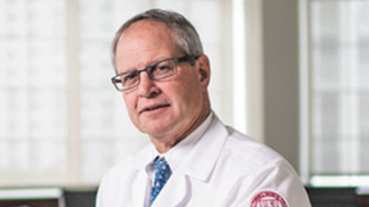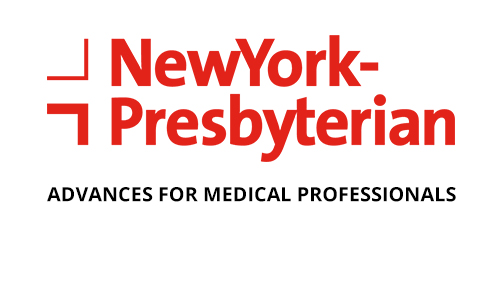Interventional Endocrinology: An Emerging Specialty

Dr. Jennifer H. Kuo
It is estimated that some 65 percent of people will have at least one thyroid nodule in their lifetime and within that number, only 5 percent are malignant. “That is a huge number of individuals with benign nodules,” says Jennifer H. Kuo, MD, MS, Director of the Interventional Endocrinology Program and Surgical Director of the Thyroid Biopsy Program at NewYork-Presbyterian/Columbia University Irving Medical Center. “For some patients a benign nodule grows very slowly, but for others it can grow quite rapidly. The neck is a tight space and a large mass can exert pressure causing difficulty in breathing, swallowing, and sometimes changes in the voice. When patients start to have these compressive symptoms, even though the mass itself is benign, we have to think of what we can do to help relieve those symptoms. The only thing we have been able to offer until now has been surgery.”
“Interventional endocrinology has the potential to revolutionize the way we treat thyroid diseases.”
— Dr. Jennifer H. Kuo
Thyroid lobectomy is an outpatient operation that offers patients overall good outcomes. “The surgical complication risk is low, and patients tolerate it very well,” says Dr. Kuo. “With a lobectomy, ultimately most patients will not need any thyroid hormone supplementation because the other thyroid lobe remains functional. However, at least 25 percent of patients will need supplementation at some point after surgery.”
Interventional endocrinology is an emerging specialty that uses percutaneous, image-guided, less-invasive procedures to address endocrine disorders that offers an alternative to surgery. “This approach has the potential to revolutionize the way we treat these diseases,” says Dr. Kuo. “It’s not going to be the right treatment for everyone, but it is going to be a good treatment for a lot of people.”
Ultrasound-Guided Radiofrequency Ablation
Ultrasound-guided radiofrequency ablation (RFA) treats specific types of benign thyroid nodules and lymph nodes with recurrent cancer. “RFA is best used in cases of cancers where surgery is not ideal or for symptomatic benign thyroid nodules,” says Dr. Kuo. “It involves ultrasound-guided placement of an electrode into the thyroid nodules. The electrode has an active tip that emits radiofrequency waves that allow us to burn the tissue we’re targeting in a very controlled manner. It’s similar to an ultrasound-guided fine needle biopsy. The procedure can be performed in an outpatient setting very safely. Patients are able to avoid general anesthesia and surgery, and there is no scar.”

Demonstrating ultrasound-guided radiofrequency ablation
According to Dr. Kuo, a key benefit is that thyroid hormone dependency after RFA is almost zero. “This is largely because we’ve targeted just the nodule and not any of the normal thyroid tissue that surrounds it,” she says. “With a good ablation, we are able to achieve an average of 80 to 90 percent volume reduction of these nodules without surgery and without a need for hormone supplementation in the future.”
Follow-up care involves using ultrasound to look at objective measures of volume reduction and patient symptoms. “Sometimes due to location we can’t ablate the whole nodule. For some very large nodules, multiple ablations may be needed,” explains Dr. Kuo. “For instance, if we achieve 50 percent volume reduction and the patient’s symptoms are gone, then the procedure is technically a success and the patient may not necessarily need the whole nodule to be ablated. If the nodule grows back and the patient becomes symptomatic again, we can always repeat the procedure. In addition, having RFA does not preclude having surgery down the line if necessary.”
Dr. Kuo sees interventional approaches as a safe technique for patients with benign nodules seeking treatment other than surgery. “This is a good alternative for that population of patients,” she says. “However, if there’s a question of cancer or a question of our ability to make that diagnosis before surgery, that is not a patient population that we can treat right now with RFA.”
Ultrasound-Guided Ethanol Ablation
This procedure uses high-resolution ultrasound to guide the injection of a small amount of ethanol into a thyroid nodule or lymph node. The ethanol causes an inflammatory response that leads to very targeted destruction of the nodule or node. “This approach has been very successful for treating cystic thyroid nodules, since simple cysts are almost never cancer and partially cystic nodules with no suspicious features have a less than 3 percent risk of malignancy,” says Dr. Kuo.
“Treatment of thyroid cysts is considered when compressive symptoms are present or when the cyst is very large. Traditional options for treating thyroid cysts include needle aspiration or surgical removal. Unfortunately, needle aspiration has a 60 to 90 percent chance of the cyst recurring. Although surgery cures the problem, there is a low risk of complications and a very small group of patients may not be able to have surgery due to other medical problems. For these patients, ultrasound-guided ethanol ablation is a safe and effective option.”
As Dr. Kuo explains, while the overall survival for patients with thyroid cancer is excellent, up to 20 percent will have recurrent disease. Some 90 percent of recurrences are found in the lymph nodes. “Although surgery remains the preferred treatment for recurrent disease, the chance of complications increases because of scar tissue created in previous operations,” notes Dr. Kuo. “Both ultrasound-guided ethanol and radiofrequency ablation have proven to be safe and effective procedures for recurrent thyroid cancer.”
Dr. Kuo and interventional endocrinologists at several institutions are currently collaborating on establishing a multi-institutional case series to validate the efficacy of these procedures, which are regularly performed in Asia and Europe. “We’re looking at patients who choose to have surgery versus those who choose RFA and examining aspects of their quality of life,” says Dr. Kuo. “We are also conducting research on molecular profiling of thyroid nodules. Sometimes it is very difficult to determine whether nodules are cancerous. Genetics work in this area is focused right now on diagnosing cancer and is moving towards better understanding the prognosis.”
Related Publications

Exploring Novel Treatments for Thyroid Cancer

Dr. Laura Alonso New Chief of Endocrinology at Weill Cornell





